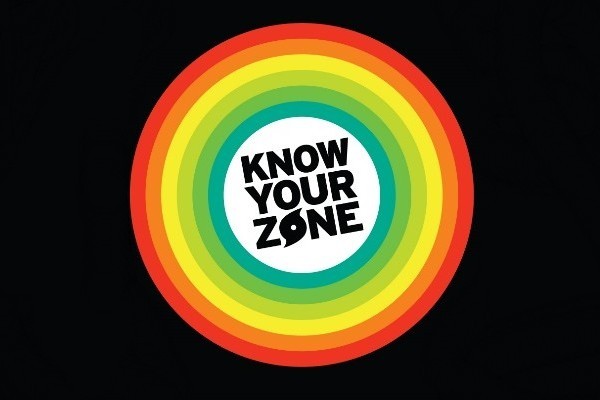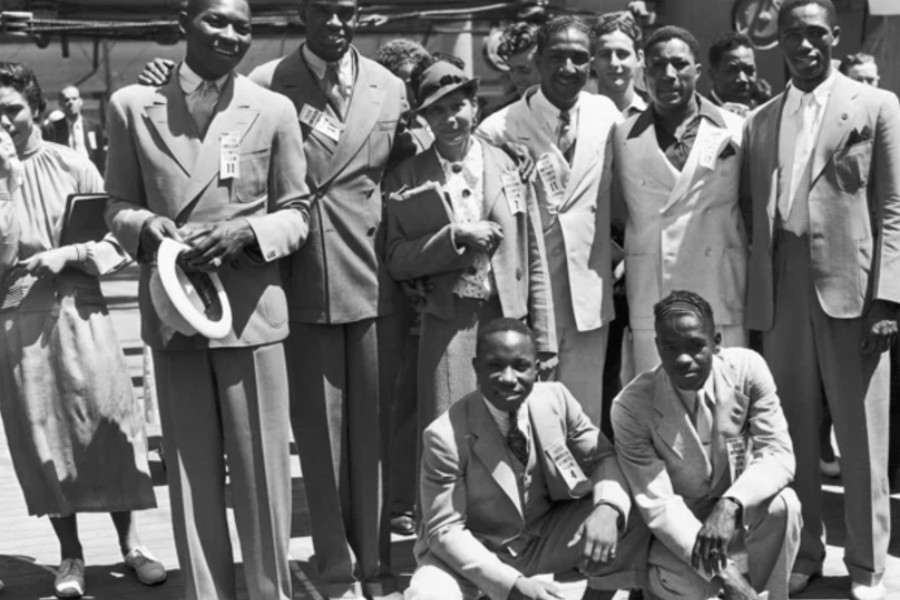 To help raise awareness of peak hurricane season and the changes to the City’s hurricane evacuation zones, the New York City Emergency Management Department has mailed a postcard to all households.
To help raise awareness of peak hurricane season and the changes to the City’s hurricane evacuation zones, the New York City Emergency Management Department has mailed a postcard to all households.
Businesses whose hurricane evacuation zone has changed for the 2021 Atlantic hurricane season.The mailing is part of the multipronged Know Your Zone hurricane awareness campaign, which encourages New Yorkers to find out whether they live in one of the City’s six hurricane evacuation zones and take steps to be prepared for coastal storms and hurricanes.
Even though the Atlantic hurricane season officially begins June 1 and runs through November 30, 84 percent of hurricanes form during peak hurricane season, from August through October. Roughly 1 million New Yorkers now live in a different hurricane evacuation zone than last year.
The City’s six hurricane evacuation zones have been updated to incorporate new and improved data, as well as information from actual events to allow the City to more accurately define areas most at risk of flooding due to storm surge from a hurricane.
Residents who live in these zones may be ordered to evacuate depending on a hurricane’s forecast strength, track, and storm surge. If the Mayor orders an evacuation of your zone, do so as directed.
“This mailing is one of many steps NYC Emergency Management is taking to make sure New Yorkers are aware of hurricane evacuation zone changes and the importance of being prepared for hurricanes,” NYC Emergency Management Commissioner John Scrivanisaid. “Remember: The time to prepare for a hurricane is before disaster strikes. New Yorkers can visit NYC.gov/knowyourzone or call 311 anytime to find their hurricane evacuation zone, understand the hazards they may face, and learn the steps they can take to be ready.”
In addition to the postcard mailing, the Know Your Zone hurricane awareness campaign is also supported by print and digital advertisements, including radio advertising and multilingual newspaper ads through the fall.
The National Oceanic and Atmospheric Administration (NOAA) updated its 2021 Atlantic hurricane season outlook with forecasters noting that an above-normal season is still expected.
There have been five named storms so far this season. An average season produces 12 named storms, of which six become hurricanes, including three major hurricanes.
Make An Emergency Plan
Develop a plan with your household members that outlines what to do during an emergency, including a coastal storm.
Use Ready New York: My Emergency Plan at NYC.gov/EmergencyManagement. It is available in 13 languages and audio format. For more information, visit NYC.gov/KnowYourZone.
- If you have a disability, access and functional need, make sure your plan addresses how your needs may affect your ability to evacuate, shelter in place, or communicate with emergency workers. Arrange help from family, friends, or service providers if you will need assistance.
- Know your zone. Areas of the city subject to storm surge flooding are divided into six evacuation zones (1 through 6) based on risk of storm surge flooding. Use the Hurricane Evacuation Zone Finder or call 311 (212-639-9675 for Video Relay Service, or TTY: 212-504-4115), to find out if your address is located in an evacuation zone.
- Prepare a Go Bag that you can grab in case you need to leave your home in a hurry. You’ll need to customize your Go Bag for your personal needs. All household members should have a Go Bag, including children and pets. Visit NYC.gov/EmergencyManagement for tips on what to pack.
- · Stay informed by signing up for Notify NYC to receive emergency notifications. New Yorkers are encouraged to sign up for Notify NYC, the City’s free emergency communications program, for the latest information and updates on emergency events in NYC. To sign up for Notify NYC, download the free mobile application, visit NYC.gov/NotifyNYC, call 311, or follow @NotifyNYC on Twitter.
Prepare For Flooding
If you live in a flood-susceptible area:
- Keep sandbags, plywood, plastic sheeting, and lumber on hand to help protect your home.
- Make an itemized list of personal property, including furnishings, clothing, and valuables.
- Move valuable items from basements to upper floors. (Basements are vulnerable to flooding.)
- Know your flood risk. Flood zones are used to set flood insurance rates and building regulations. Residents should not use flood zones to determine the need to evacuate during coastal storms. For more information, visit NYC.gov/floodmaps or www.floodhelpny.org.
- Consider getting flood insurance. Protection against loss due to floods is not covered under a homeowner’s policy. Contact your property/casualty agent or broker about eligibility for flood insurance. For more information, visit the National Flood Insurance Program online at www.floodsmart.gov.
Prepare For Power Outages
- Build or restock your emergency supply kit, including a flashlight, batteries, cash, and first aid supplies.
- Charge cell phones and any battery-powered devices.
- Turn your refrigerator and freezer to a colder setting. If you lose power, items that need refrigeration will stay cooler for longer.
- Check on friends, relatives, and neighbors, especially older adults and people with disabilities, access and functional needs, or health conditions. Help them to prepare if needed.
- If you depend on power for life-sustaining equipment, plan to evacuate. You may lose power following a hurricane. Ask your utility company if your medical equipment qualifies you to be listed as a life-sustaining equipment customer.
- If you or anyone in your home depends on electrically powered life-sustaining medical equipment (such as a ventilator or cardiac device), receives dialysis or has limited mobility, there are specific steps you should take to prepare for a coastal storm.
For more safety tips, visit NYC.gov/EmergencyManagement. New Yorkers are also encouraged to sign up for Notify NYC, the City’s free, official emergency communications program.
Sign up for Notify NYC to receive free emergency alerts and updates in your preferred language.
Register for free to receive by visiting NYC.gov/NotifyNYC, calling 311 (212-639-9675 for Video Relay Service, or TTY: 212-504-4115), following @NotifyNYC on Twitter, or getting the free Notify NYC mobile application for your Apple or Android device.
Become a Harlem Insider!
By submitting this form, you are consenting to receive marketing emails from: . You can revoke your consent to receive emails at any time by using the SafeUnsubscribe® link, found at the bottom of every email. Emails are serviced by Constant Contact








